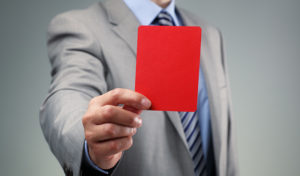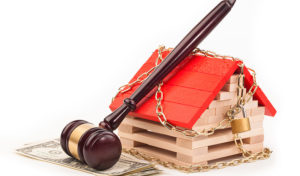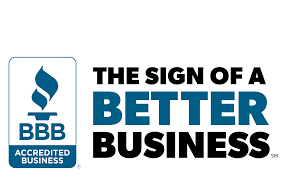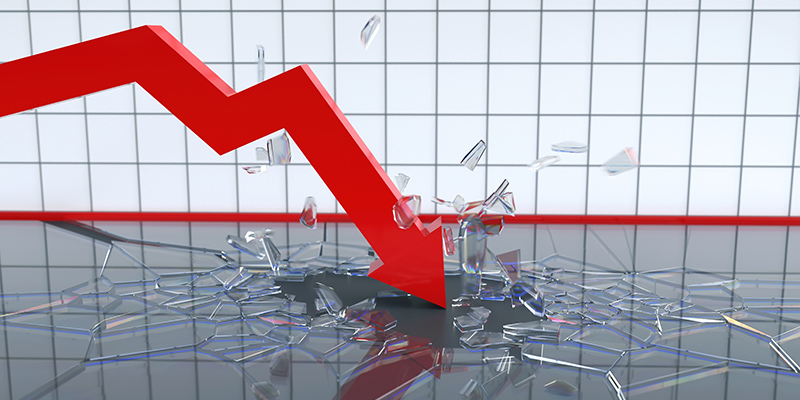One of the hardest parts about running a homeowners association is collecting dues, especially when they become delinquent. How can your HOA reduce delinquencies? Let us count the ways.
Helping Your HOA Reduce Delinquencies Using These Methods
Homeowners associations face unpaid dues and overdue balances all the time. But, when delinquent HOA dues start piling up, your association will begin to have trouble paying for necessary expenses.
What happens if you stop paying your HOA? First of all, a high delinquency rate can lead to a budget deficit. When that happens, the HOA can’t pay for the maintenance and upkeep of the community. This will eventually lead to dissatisfied homeowners, a poorer aesthetic, and lower property values.
Secondly, the HOA will have to look for other ways to make up for the loss. This means either applying for a loan or charging special assessments to homeowners, neither of which are popular choices.
From the delinquent homeowner’s perspective, failing to pay HOA dues can result in a number of consequences. This can even include legal action and foreclosure.
But, how can an HOA lower delinquency rates within the community?
1. Have a Strict Collections Policy
How can your HOA reduce delinquencies? A strict collections policy will be able to decrease your association’s delinquency rate. You need to make homeowners aware of the consequences of not paying their dues.
You will usually find your collections policy outlined within your governing documents. These documents should also tell you when you should consider a homeowner’s dues to be delinquent. For some HOAs, it is 3 months’ worth of unpaid dues, while others stipulate it to be 6 months.
When your community has fewer delinquent homeowners, there is also a lower chance of having HOA debts. In case of future financial hardships, it will also be easier to get a loan. The Federal Housing Administration (FHA), as well as many banks and lenders, no longer lend money to associations that have a delinquency rate of 15% or higher.
2. Monitor Delinquencies Constantly
Delinquent homeowners association dues can quickly swell up until you can’t handle them anymore. Don’t let the situation get out of hand by ignoring your delinquency report. It is infinitely better to catch delinquencies and put a stop to them early on before homeowner debt becomes too unmanageable.
Make sure to discuss delinquencies at every board meeting. You should also create a delinquency report along with your other financial statements. This report should indicate the names of delinquent homeowners, how much they each owe, how long the debt has been overdue, and the total delinquent amount.
3. Send a Notice of Delinquent Assessment
It is important to start every collection effort by sending a notice. Sometimes, homeowners are just not aware that they have overdue balances. With 9-to-5 jobs, full-time parenting duties, and personal lives, it is easy for homeowners to forget to pay their dues.
Your delinquent HOA dues letter should consist of all the information they need. This includes how much they owe and when they should settle the amount by. It should also include any late fees you intend to charge.
4. Impose a Late Fee
 How do I collect delinquent HOA dues? One way is to impose a late fee. Homeowners are more likely to pay their dues on time and settle their overdue balance when you place a penalty.
How do I collect delinquent HOA dues? One way is to impose a late fee. Homeowners are more likely to pay their dues on time and settle their overdue balance when you place a penalty.
In fact, many associations have seen a reduction in delinquencies once they imposed a $50 fee that compounds. Of course, just make sure your state laws and governing documents allow you to charge a late fee.
5. Report the Delinquency to the Credit Bureau
Another way to encourage on-time payments and reduce delinquencies is to report it to a credit reporting agency as a consequence. When their credit score is at stake, homeowners are more likely to pay their dues promptly. Make it clear to homeowners that late dues payment can impact their credit rating. It is also worth including this warning in your notice of delinquency letter.
6. Offer a Payment Plan
Can you negotiate past due HOA fees? Homeowners can certainly try to negotiate their late dues with the HOA board. Assuming your governing documents permit it, you can offer delinquent homeowners a payment plan to give them some breathing room. Some states, such as Colorado, even require HOAs to offer payment plans.
7. Suspend Privileges
One of the best things about living in an HOA is access to community amenities such as pools and gyms. When you take these privileges away as a consequence of overdue accounts, homeowners are more inclined to pay on time. Again, you should first check that it is within your association’s power to suspend privileges. Otherwise, you could find yourself at potential liability.
8. Hire an HOA Collection Agency
If your board has no time for HOA delinquent assessment collections, then it is a good idea to outsource the task to a third party. A collection agency will know how to collect delinquent HOA dues using the best strategies. These agencies usually charge a fixed rate or a percentage of the amount collected as compensation. It is also important to keep in mind that, unlike the HOA, collection agencies are governed by the FDCPA.
9. Take It to Small Claims Court
Can HOA force you to pay? While it is a homeowner’s obligation to pay monthly dues, there are ways the HOA can use to force homeowners to settle their overdue accounts. One of these is to take delinquent homeowners to small claims court.
It is worth noting that small claims courts do have a dollar limit, which varies depending on your state. Most of the time, though, the dollar limit is enough to cover the delinquent homeowner dues.
10. Attach a Lien
 Can you sell your house if you owe HOA fees? In some cases, HOAs can attach a lien to a homeowner’s property when they fail to pay their dues.
Can you sell your house if you owe HOA fees? In some cases, HOAs can attach a lien to a homeowner’s property when they fail to pay their dues.
Liens make it harder for a homeowner to sell their house, but it is not impossible. When the homeowner does sell the property, the lien will need to be paid off.
Associations, though, usually don’t receive lien priority. When a house is sold, mortgage lenders are typically the first to receive compensation. Though, in some states, HOAs can file a super lien, which catapults them to first priority.
11. Foreclose
Can you lose your home for not paying HOA fees? The short answer is yes. Associations can initiate foreclosure proceedings in an attempt to collect overdue fees. This process is usually very time-consuming and costly, though, so it should be your absolute last resort.
Upon foreclosure, who is responsible for past due HOA fees? Laws can vary from state to state, though the obligation to pay dues usually falls to the property owner. Therefore, if a bank becomes the property owner (with its name on the deed), the bank will become responsible for paying dues onward.
Can Your HOA Reduce Delinquencies Through Factoring?
Factoring is simply the practice of selling your association’s accounts receivable (in the form of unpaid dues) for a fee. Whether you receive this fee immediately upon sale or after collection of the debt depends on your agreement with the buyer.
Although it remains one of the options available to HOAs, factoring is not something you should consider as your first choice. Some states place limitations on your ability to utilize factoring to reduce delinquencies. Other states that do allow it rarely see it take place.
There are a few reasons why factoring is not as popular today. Factoring essentially passes on the account to a third party, and that type of action can create friction within the community.
Many factoring companies also charge expensive late fees, further crippling the homeowner’s ability to pay. Beyond that, factoring companies typically have the luxury of buying only your most collectible accounts, leaving your HOA with bad accounts.
HOA Debts: Do All Roads Lead to Special Assessments?
An economic recession makes it harder for homeowners to meet their financial obligations such as paying mortgages and HOA dues. While it is easy to empathize with what your community members are going through, a rise in uncollected assessments can be very troublesome for the HOA.
Unless an association has external sources of revenue, it greatly depends on the members’ monthly assessments to operate. HOA dues are used to pay for operating expenses such as utilities, maintenance services, management fees, insurance, and taxes. So, the more your HOA delinquency rate increases, the harder it is for your community to operate.
In the face of HOA debts, associations try to come up with ways to raise money for their operations. Levying special assessments is the last resort because it places a huge financial burden on the dutiful HOA members. However, in the end, all roads seemingly lead to special assessments.
For example, some HOAs draw from their reserves to pay for their operating expenses. While this will solve your current financial problems, it also creates a bigger problem in the long term. What happens when you need to fund large-scale maintenance and replacement projects? If you depleted your reserves, you will eventually have to levy a special assessment on homeowners.
Some states, like Washington, also impose a deadline on when you need to replenish a depleted reserve account. Again, if you are dealing with HOA bad debts, you will have a hard time coming up with the money. The HOA can get a loan, but this too eventually leads to levying special assessments on your homeowners.
How Can an HOA Reduce Delinquencies? Other Ways Explored
 While proper budgeting helps protect the community, the HOA board should understand the added stress placed on responsible homeowners.
While proper budgeting helps protect the community, the HOA board should understand the added stress placed on responsible homeowners.
The ones who dutifully pay their dues each month will have to pick up the shortfall created by delinquent homeowners.
As such, the association should come up with other ways to decrease the HOA or condo delinquency rate. While some expenses such as insurance and taxes are non-negotiable, some HOAs may be able to cut back on their expenses. Here are some examples:
- Closing amenities to reduce operating costs
- Postponing capital improvement projects
- Reasonably cutting back on landscaping, maintenance services, etc.
- Having volunteer homeowners perform services
While these examples might help decrease operating expenses, they may not be enough to cover the shortfall created by delinquent homeowners during a recession. One of the best ways to protect your community during a down economy is to establish a strict collections policy from the get-go.
HOA Management Companies Can Help, Too
How can your HOA reduce delinquencies? As you can see, there are many ways you can adopt to help lower your delinquency rates. Some of them are more effective than others, and a couple of them require you to spend more resources. An HOA management company, though, can also help collect unpaid dues.






